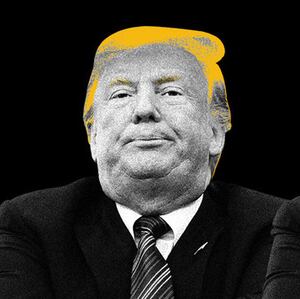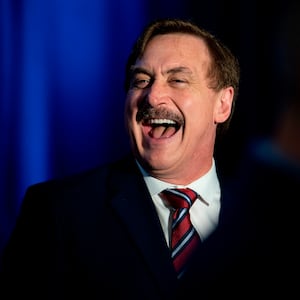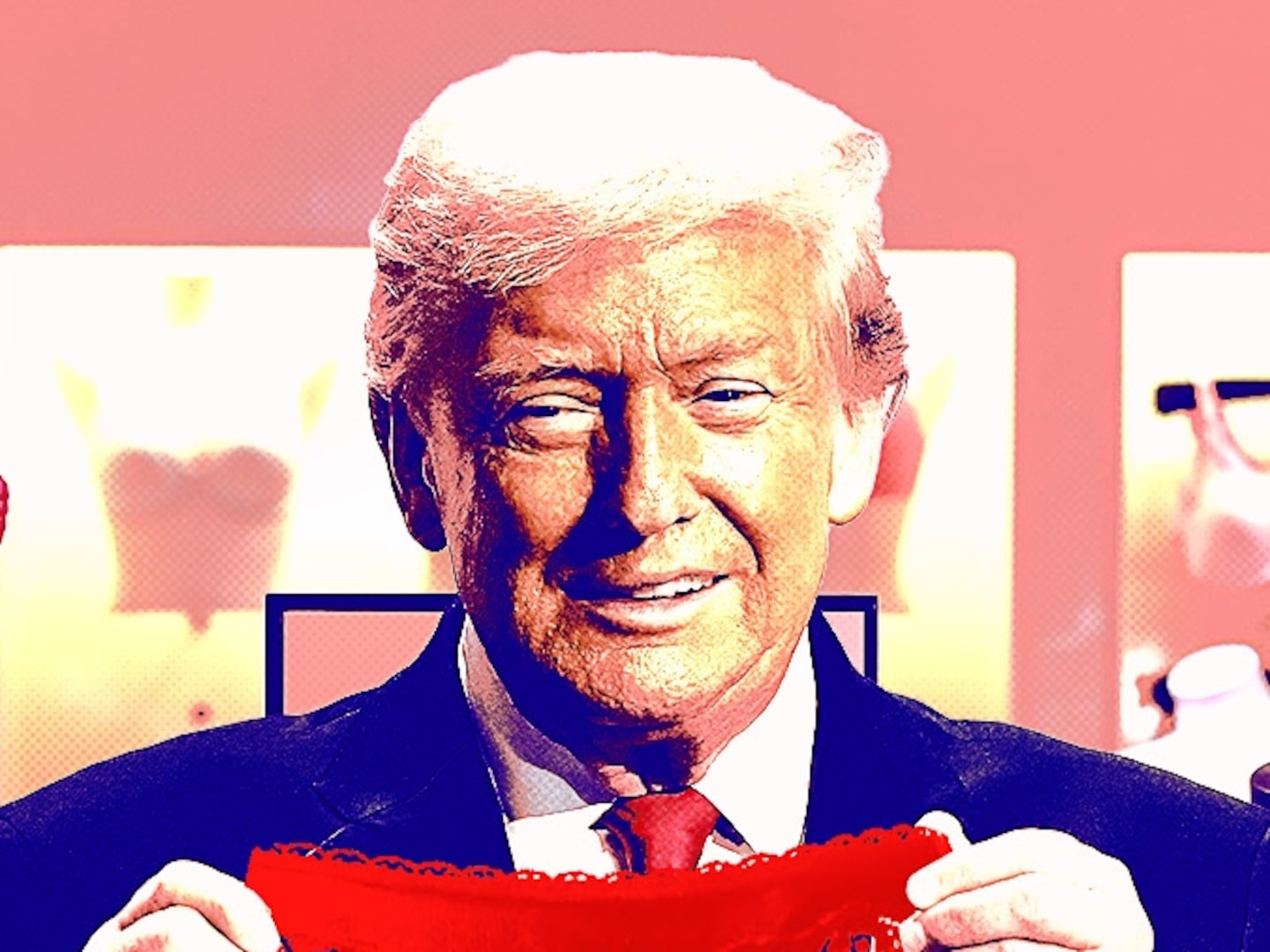MyPillow CEO Mike Lindell’s charity and business combo venture to make and sell COVID-19 masks has cost him millions of dollars, according to the increasingly far-right conservative figure.
Today his company is sitting on millions of unsold face coverings, which he now despises and wants to burn.
“I can’t give them away,” Lindell told The Daily Beast in a phone interview this week. “I tried to. No one wants the things anymore.”
Lindell, who claims to have retrofitted about 75 percent of MyPillow’s manufacturing line to sew cloth masks, said the machinery and space he’d invested in now sits idle and empty. The CEO estimates he was able to offload about 5 percent of his mask inventory, and that all told, the operation cost his company and him personally a combined $7 million.
“How many of those do we have, that we ought to just burn?” Lindell asked an aide during the interview. The assistant confirmed the number was about two million.
Lindell chalks up his losses to various parties, including “many bad people in the mask industry,” Google, the media, and politically motivated boycotts. But the biggest hit came when foreign competitors undercut prices and flooded the market.
“All of a sudden, there was masks everywhere, almost as if the industry knew it was coming and waited for prices to go up,” the businessman said. “Now I probably got $7 million out of my pocket that we’re just stuck with.”
A born-again Christian and fevered MAGA apostle, Lindell frames the failed venture as a charitable giving effort and point of pride. And to an extent, it is. But he offered contradictory narratives, blurring altruism with capitalism, failure with success.
Ultimately, the operation appears to have been a failed charity effort that Lindell then turned into a failed business venture, which he then turned back into a charity.
Throughout the interview, Lindell predicted this article would unfairly spin his mask enterprise as a “failure.” But he invariably fell back to bitter lamentations and gripes about all the things that went wrong. And even though he has since converted into a virulent anti-masker, Lindell was conspicuously unconcerned about the idea that he was misled into embarking on a charitable venture which would have caused more harm than good. Instead, he laid the blame on a multitude of commercial and regulatory hang-ups that plagued the endeavor. He even defended his products as totems of comfort that carried Americans through a dark time. “I don’t mind, because it helped so many people back then,” he said.
Lindell first announced the project last March, during a televised Rose Garden press event alongside President Donald Trump and a number of corporate executives. Trump had at the time called on American companies to boost the government’s anemic capacity to manufacture and distribute protective gear for desperate hospitals and frontline workers. When the president gave the podium to the pillow tycoon, Lindell delivered a short, bizarre speech during which he said Trump had been “chosen by God” for the moment.
According to Lindell, MyPillow had intended only to donate its masks to frontline workers. In the opening stages, he said, the company produced about 50,000 masks a week, cutting its cotton sheet fabric into face coverings and stitching in sourced elastic. But the plan soon hit roadblocks. For one, the cloth masks didn’t meet Food and Drug Administration standards.
“We were only gonna donate to VA hospitals, nursing homes, but the FDA and [Centers for Disease Control and Prevention] made it that you could only use certain masks from certain factories,” Lindell said, referring to regulations that set the bar at N95-grade masks or higher.
And soon, the market for FDA-approved masks grew saturated. Foreign competitors flooded the country with cheaper products and choked out domestic manufacturers. Middlemen swept in to gouge companies and consumers alike. Two major fabric companies who initially pledged to pitch in to the greater cause—Hanes and Fruit of the Loom—dropped their commitments.
But MyPillow persevered. Lindell began outsourcing N95 and KN95 masks himself, purchasing them from other distributors with his personal funds and then donating them or selling them at cost. Beneficiaries included municipalities, police departments, nursing homes, overseas ministries, the state of Minnesota, and the Arizona Navajo Nation.
“I flew down to visit the Navajo Indians in Arizona and met with the vice president of the Navajo Nation,” Lindell said. “There were about 268,000 people in the tribe, and they really needed help, you know, and I donated a million masks to them alone.”
Costs for the sourced masks ran between $1.50 and $2.50 apiece, Lindell said, and ultimately, set him back roughly $4 million.
“I don’t know where we got them,” Lindell said of his sourcing. “We got them from distributor people, so I would buy them and I would give them out. We did a lot of coordination type stuff for people—‘you can take your mask and go over here.’ I have some of the surgical masks left.”
Still, MyPillow had a bumper crop of cloth masks, and a newly purchased building full of “hundreds” of newly purchased sewing machines. Though the company had initially planned to donate its masks, Lindell saw an opportunity. He began selling them to the public and promoting the items online and in media appearances. And while Lindell vowed he was not gunning for a profit and only sold masks at or below the $1.50 cost of production, that’s only the most recent discounted rate. The MyPillow website once priced them as much as three times that rate, and in a June 2020 radio interview, Lindell marked them up four dollars a pop.

Sensing a budding demand, Lindell ramped up production. “I couldn’t make enough of them,” he said. He tapped a MyPillow partner in Haiti (Lindell claims on his personal website that MyPillow products are “100% American Made”) and outsourced sewing work to domestic companies and, he says, churches.
Amanda Gray, vice president of sales at Georgia Expo—a company that makes tradeshow and event equipment—told The Daily Beast they had reached out to Lindell.
“Our owner is a big fan of Fox News, and he saw the news that Mike was going to sell masks,” Gray said. “Our model had to change quickly with the pandemic, and we’ve got a full sewing department. I went down a rabbit hole and called over and over again. Guess it was right place, right time, and they said ‘Yes, we do need help.’”
But the partnership ended up costing Lindell hundreds of thousands of dollars.
“As soon as imports hit the market, we were done,” Gray said, echoing Lindell on that issue. “We were selling for a dollar at one point and couldn’t compete. At some point they said demand was falling off, and we had already staffed up and ordered equipment. So he paid for the full order anyway.”
Lindell, who said shady middlemen had sandbagged him to the tune of millions, paid Georgia Expo $800,000 to make good on the contract. The money, Gray said, helped carry the company over as it scrambled to adapt to the novel needs of pandemic life.
By the fall, Lindell said, he had given up. In October, he contacted the office of Democratic Minnesota Governor Tim Walz—who at the time Lindell was threatening to challenge in 2022—to see if the state wanted his masks. But according to Lindell, the office said the donation would have to wait until after the election, citing the CEO’s close affiliation with Trump.
“I told him I was going to go to the press, so he did finally take them,” Lindell said.
Walz’s office pushed back on that claim in a statement: “We worked with Mr. Lindell, just as we worked with companies, nonprofits, and individuals across the state who generously offered to help,” adding, “The state did not take politics into consideration when accepting donations.”
Lindell may be able to use these donations as tax write-offs. But it’s unclear exactly who would get those benefits, because the lines between his business and charity activities are difficult to decipher.
Although Lindell said he personally outsourced KN95-style masks to donate, MyPillow also sold similar masks alongside its own line of cloth coverings, making it difficult to say whether his personal efforts overlapped with his company—and if so, to what degree.
Some of what Lindell calls the “un-given-away” face coverings in his warehouse are surgical masks, some are disposable, and some are cloth. And while Lindell told The Daily Beast he didn’t deal with foreign entities for his outsourcing, an order form url on his site indicates the disposable masks were imported. They’re still featured on the MyPillow site, though the order form has been deleted.
Lindell says he stopped selling his masks after coming to the conclusion that they don’t work.
“After all that and then we find out masks never worked in the first place,” said Lindell, who at one point tried to donate oleander, a toxic plant he has pitched as a COVID miracle cure. “They’ve proven they didn’t help one iota. I got calls into other countries but don’t know if I even want to give them now, because they don’t work.”
Science, of course, does not support those claims. But they could have something to do with MyPillow’s anemic sales, which the company draws almost exclusively from a conservative market.
By the summer, mask sales had proved a boon for struggling small businesses and retailers alike, and the market was swelling. Burberry introduced a line of designer antimicrobial cloth face coverings in August, the month Lindell paid Georgia Expo $800,000 for masks he no longer wanted.
A Pew Research study from late June 2020 found that Democrats were more than twice as likely to wear masks as Republicans. And anti-mask theories were pushed by mainstream conservative voices throughout the summer, including by Lindell allies on Fox News, when his operation was struggling.
Lindell currently faces two billion-dollar defamation lawsuits for promoting reckless and false allegations of election fraud. His interview with The Daily Beast was riddled with complaints about the recent damage his business has sustained from politically motivated boycotts.
But he isn’t exactly out of money. He may be able to write losses off as business costs, according to Phil Hackney, a tax law expert at the University of Pittsburgh who served in the Chief Counsel’s Office at the Internal Revenue Service. Asked whether Lindell may have crossed any legal lines between charity and business, Hackney said it was unlikely.
“Sounds to me like it’s just a bad business decision,” he said, noting that Lindell may also be able to deduct some donations, such as to religious groups, the state of Minnesota, and to Navajo Nation.
As for his Lindell’s original pillow business, he says he’s only been able to shift a fraction of his mask operations back to normal business use.
“That building sits about the same way it was when I converted it last May. That’s all the same now,” he said. “I don’t know how to convert it back—you can’t just cut wires and stuff. Will we need it again? Probably not. We’ll probably eventually have to sell the sewing machines. We bought hundreds.”
As for the millions of masks sitting in that warehouse, they’re free for the taking.
“We gave away five million masks to the public, free across this country, and it cost about $4.8 million to make them,” he said. “Anyone can have them now. I don’t care.”









